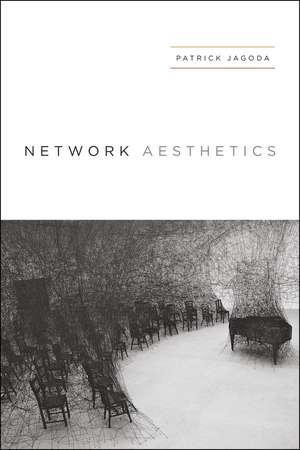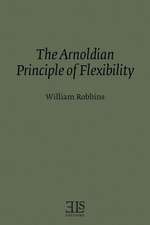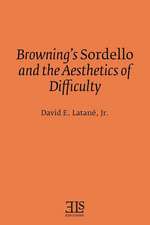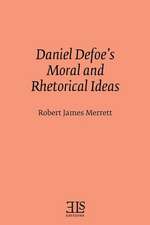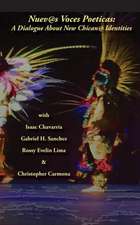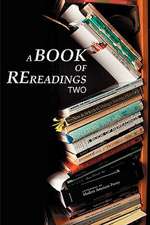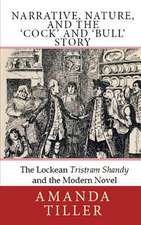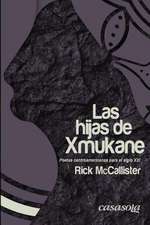Network Aesthetics
Autor Professor Patrick Jagodaen Limba Engleză Paperback – 22 mar 2016
The term “network” is now applied to everything from the Internet to terrorist-cell systems. But the word’s ubiquity has also made it a cliché, a concept at once recognizable yet hard to explain. Network Aesthetics, in exploring how popular culture mediates our experience with interconnected life, reveals the network’s role as a way for people to construct and manage their world—and their view of themselves.
Each chapter considers how popular media and artistic forms make sense of decentralized network metaphors and infrastructures. Patrick Jagoda first examines narratives from the 1990s and 2000s, including the novel Underworld, the film Syriana, and the television series The Wire, all of which play with network forms to promote reflection on domestic crisis and imperial decline in contemporary America. Jagoda then looks at digital media that are interactive, nonlinear, and dependent on connected audiences to show how recent approaches, such as those in the videogame Journey, open up space for participatory and improvisational thought.
Contributing to fields as diverse as literary criticism, digital studies, media theory, and American studies, Network Aesthetics brilliantly demonstrates that, in today’s world, networks are something that can not only be known, but also felt, inhabited, and, crucially, transformed.
Each chapter considers how popular media and artistic forms make sense of decentralized network metaphors and infrastructures. Patrick Jagoda first examines narratives from the 1990s and 2000s, including the novel Underworld, the film Syriana, and the television series The Wire, all of which play with network forms to promote reflection on domestic crisis and imperial decline in contemporary America. Jagoda then looks at digital media that are interactive, nonlinear, and dependent on connected audiences to show how recent approaches, such as those in the videogame Journey, open up space for participatory and improvisational thought.
Contributing to fields as diverse as literary criticism, digital studies, media theory, and American studies, Network Aesthetics brilliantly demonstrates that, in today’s world, networks are something that can not only be known, but also felt, inhabited, and, crucially, transformed.
Preț: 228.38 lei
Nou
Puncte Express: 343
Preț estimativ în valută:
43.71€ • 44.76$ • 36.36£
43.71€ • 44.76$ • 36.36£
Carte tipărită la comandă
Livrare economică 18 martie-01 aprilie
Preluare comenzi: 021 569.72.76
Specificații
ISBN-13: 9780226346519
ISBN-10: 022634651X
Pagini: 304
Ilustrații: 27 halftones
Dimensiuni: 152 x 229 x 23 mm
Greutate: 0.43 kg
Ediția:1
Editura: University of Chicago Press
Colecția University of Chicago Press
ISBN-10: 022634651X
Pagini: 304
Ilustrații: 27 halftones
Dimensiuni: 152 x 229 x 23 mm
Greutate: 0.43 kg
Ediția:1
Editura: University of Chicago Press
Colecția University of Chicago Press
Notă biografică
Patrick Jagoda is assistant professor of English at the University of Chicago and a coeditor of Critical Inquiry.
Cuprins
List of Figures
Acknowledgments
Introduction: Network Aesthetics
Part 1: Linear Forms
1. Maximal Aesthetics: Network Novels
2. Emergent Aesthetics: Network Films
3. Realist Aesthetics: Televisual Networks
Part 2: Distributed Forms
4. Participatory Aesthetics: Network Games
5. Improvisational Aesthetics: Alternate Reality Games
Coda: After Networks (Comes Ambivalence)
Notes
Index
Acknowledgments
Introduction: Network Aesthetics
Part 1: Linear Forms
1. Maximal Aesthetics: Network Novels
2. Emergent Aesthetics: Network Films
3. Realist Aesthetics: Televisual Networks
Part 2: Distributed Forms
4. Participatory Aesthetics: Network Games
5. Improvisational Aesthetics: Alternate Reality Games
Coda: After Networks (Comes Ambivalence)
Notes
Index
Recenzii
“Network Aesthetics is ambitious and comprehensive, informed and original. Jagoda manages to retain the fluidity of the term ‘network’ while understanding it in both its utopian and dystopian dimensions, and he displays an alertness to, and facility with, issues of medium specificity that is both rare and very welcome.”
“Comparative in the richest way. . . Jagoda’s sustained critical engagement with popular cultural forms is welcome at a time where the humanities, publicly and within the academy, are often asked to give an account of themselves and their value. . . . In his careful attention to the interplay between media and the modes of relation they give shape to, he does make the simple, necessary case for aesthetic work and the study of that work in today’s political and cultural reality.”
“Network Aesthetics constitutes a valuable corrective to the cultural lag of the academy, which often pretends—in the name of the Great Tradition—that we are all iterations of Kant listening to Bach while composing the next trans-meta-critique. . . . Jagoda has made an important contribution to aesthetic theory.”
“Jagoda’s work makes key contributions to our understanding of the role of networks in contemporary cultural production and will be of value in a number of fields, from literary studies to film and television studies to digital media studies. Network Aesthetics is an important and timely book that powerfully affirms the ability of aesthetic forms and practices to help us make sense of our world—and also to intervene in it.”
“Network Aesthetics will transform the study of digital networks both for new media scholars and for film and literature scholars. Jagoda’s monograph is a fully fleshed out, closely argued, and richly detailed account of an emergent network aesthetics that informs both analog and digital forms such as the novel, the television serial, the networked game, and the augmented reality game. A remarkable book: lyrical, deeply ethical, and inspiring.”
"This book certainly represents a key chapter in the scholar history of cultural studies, with an undoubtedly original and inspiring approach, while offering a complete and comprehensive analysis of network and connection as 'infrastructural basis' and heuristic notions for the understanding of contemporary life, permeated with interdsciplinarity and transmediality."
